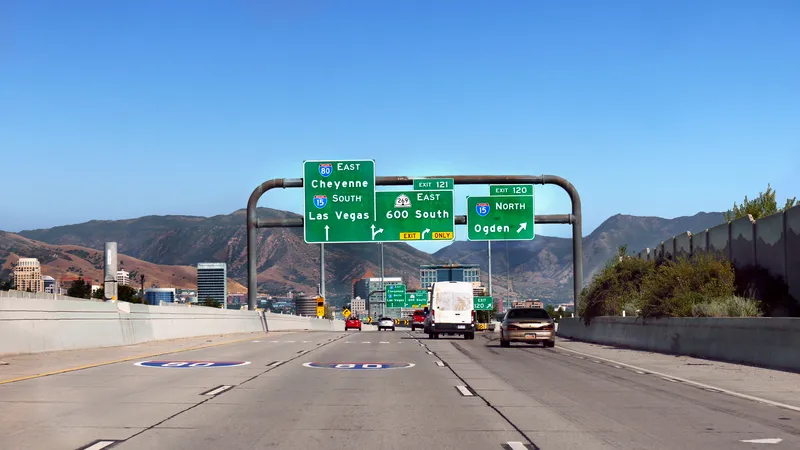A new report, A Vision for Transport Planning, has been produced and published by the Chartered Institute of Logistics and Transport (CILT) and the Transport Planning Society (TPS), setting out the key role transport planning can play in meeting the pressing challenges the nation will face over the next 20 years.
Taking a view to 2035, the report focuses on how the UK can benefit to the greatest extent possible from transport planning’s unique influence – ranging from its major impact on national economi
October 3, 2014
Read time: 3 mins
A new report, A Vision for Transport Planning, has been produced and published by the 6500 Chartered Institute of Logistics and Transport (CILT) and the Transport Planning Society (TPS), setting out the key role transport planning can play in meeting the pressing challenges the nation will face over the next 20 years.
Taking a view to 2035, the report focuses on how the UK can benefit to the greatest extent possible from transport planning’s unique influence – ranging from its major impact on national economic performance to combating climate change, creating pleasant, vibrant streets and improving public health – helping to create a more prosperous country with a better quality of life.
The report provides a view of the central and local government structures and policies which could be needed, the skills the transport planning profession must equip itself with and the support it requires.
Significant aspects of the Vision include the creation of a national spatial planning strategy produced with input from all relevant central government departments. This strategy would set the lead for local authorities having significant decentralised powers to fund and control transport systems, and develop complementary plans to the national strategy.
At local level, ‘place making’ would become a core element of transport planning, balancing issues such as smooth transport flows, the need for people-friendly streets, and air quality.
The report poses a number of challenges to the transport planning profession. They include; bringing together the wide number of professional fields with an influence on transport, building an in-depth understanding of the priorities of local communities and developing acute political acumen.
Report author, Martin Richards, commented: “Transport is at the heart of so much that affects our daily lives. A revival of sustained economic growth and rising population will create additional pressures on our transport networks over the next 20 years. It’s therefore more vital than ever that there is a flourishing transport planning profession, supported at national and local level, to plan and recommend coherent spatial strategies that provide the transport networks and national and local connectivity we need.
“As well as supporting a growing economy and efficient movement of people and goods, there is potential to capitalise more effectively on the exceptional range of benefits transport can deliver. Too often this has been overlooked in policymaking and planning to the detriment of our towns and cities.”
Chair of TPS, Nick Richardson, commented: “Transport planning is on the cusp of a new phase of growth which will help meet expanding travel needs and expectations. Creating a vision for transport planning is an important element for achieving success in the future.”
Taking a view to 2035, the report focuses on how the UK can benefit to the greatest extent possible from transport planning’s unique influence – ranging from its major impact on national economic performance to combating climate change, creating pleasant, vibrant streets and improving public health – helping to create a more prosperous country with a better quality of life.
The report provides a view of the central and local government structures and policies which could be needed, the skills the transport planning profession must equip itself with and the support it requires.
Significant aspects of the Vision include the creation of a national spatial planning strategy produced with input from all relevant central government departments. This strategy would set the lead for local authorities having significant decentralised powers to fund and control transport systems, and develop complementary plans to the national strategy.
At local level, ‘place making’ would become a core element of transport planning, balancing issues such as smooth transport flows, the need for people-friendly streets, and air quality.
The report poses a number of challenges to the transport planning profession. They include; bringing together the wide number of professional fields with an influence on transport, building an in-depth understanding of the priorities of local communities and developing acute political acumen.
Report author, Martin Richards, commented: “Transport is at the heart of so much that affects our daily lives. A revival of sustained economic growth and rising population will create additional pressures on our transport networks over the next 20 years. It’s therefore more vital than ever that there is a flourishing transport planning profession, supported at national and local level, to plan and recommend coherent spatial strategies that provide the transport networks and national and local connectivity we need.
“As well as supporting a growing economy and efficient movement of people and goods, there is potential to capitalise more effectively on the exceptional range of benefits transport can deliver. Too often this has been overlooked in policymaking and planning to the detriment of our towns and cities.”
Chair of TPS, Nick Richardson, commented: “Transport planning is on the cusp of a new phase of growth which will help meet expanding travel needs and expectations. Creating a vision for transport planning is an important element for achieving success in the future.”








